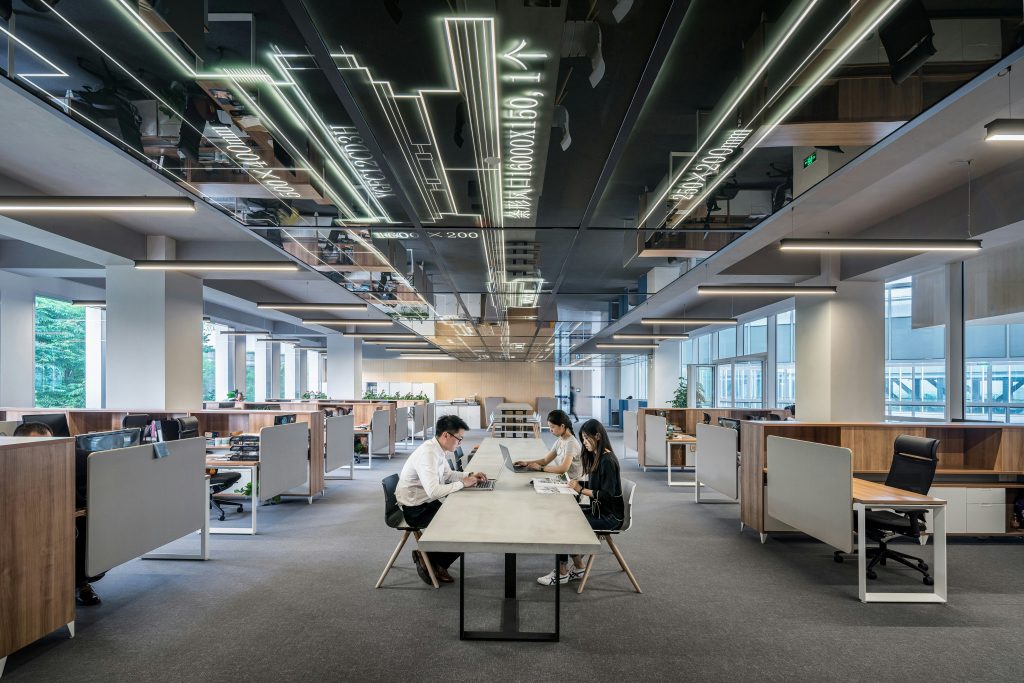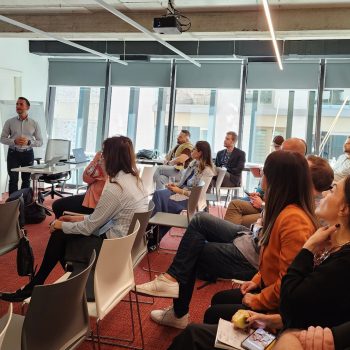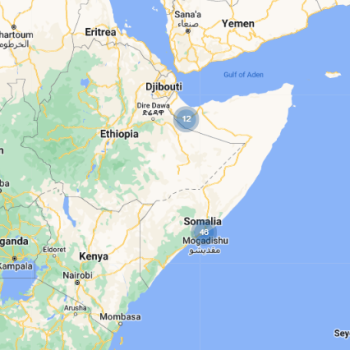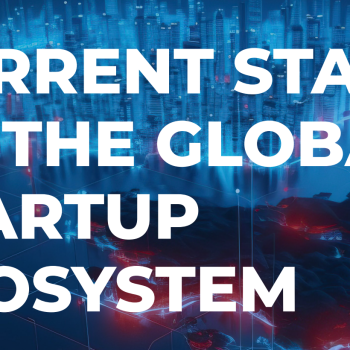In recent years, corporations have been increasingly supporting startups to tap into new ideas and keep pace with change. These “corporate-backed” startups get more than just funding—they often receive mentorship, resources, and market access from their corporate partners, helping them grow faster. In recent years, corporate funding has increased its share of startup investment in the US, reaching a peak of 12% in 2023, largely driven by major investments like Microsoft’s US$ 10 billion in OpenAI, with 2024 (until August, 27) showing a similar trend at 7.4% due to Alphabet’s US$ 5 billion investment in Waymo per Crunchbase research. However, corporates backing startups is not something new. This article takes a closer look at a few examples of successful corporate-backed startups. We’ll examine what each company has achieved prior to or after its backing from a corporation. If you know of other impactful case studies from corporate startup programs, corporate accelerators or CVCs, contact us —we’d love to feature more examples.
Why Corporations Back Startups and How They Do It?
Corporations back startups for several strategic reasons. Startups bring new ideas and technology that can help corporations stay innovative and competitive in fast-changing industries. By partnering with agile startups, corporations can speed up product development and explore new markets or product areas with reduced risk. This external collaboration allows large companies to keep up with emerging trends without the high costs and time commitment that in-house R&D often requires.
Corporations engage with startups through a diverse range of activities. Some examples include:
- Corporate Venture Capital: Corporations invest directly in startups, providing funding in exchange for equity or sometimes as a convertible note.
Example: Google Ventures, Qualcomm Ventures, Citi Ventures
- Corporate Accelerator/Incubators: Corporations offer structured programs to support and mentor startups, helping them grow and develop their business models.
Example: Barclays Eagle Labs, L’Oréal’s Beauty Tech Accelerator and AWS Accelerators
- Corporate Startup Programs: These initiatives help startups by offering resources, market access, and mentorship, which are generally non-equity-based.
Examples: IBM for Startups, Siemens for Startups
If you are looking to join a corporate startup program or accelerator, check out our full list here.

Corporate-backed startups are entities that have received funding, mentorship, resources or any other forms of support from a corporation at some point in their journey. In this article, we specifically looked at 10 examples backed by a group of corporate startup initiatives such as Google for Startups, Hitachi Ventures, Mastercard Start Path, Samsung Next and many others. All of these startups raised more than US$ 300M or exited based on the data we retrieved from Crunchbase. Additionally, they all have more than 250 employees as of November, 2024 and a SB Score that is more than 400.
The SB Score is a proprietary scoring algorithm developed by StartupBlink, powered by data from Crunchbase and Semrush. It considers factors such as startups’ total funding, employee size, and website traffic to assess their success. Exits on the list do not have an SB Score, as they are no longer classified as startups.
Life360
Corporate Backing from: BMW I Ventures, Google, FBFund
Total Funding: US$ 140.2M
Employee Size: 251-500
SB Score: Exit
Life360 is a location-based service and mobile application designed primarily for families and friends to stay connected and ensure each other’s safety. The startup was founded by Chris Hulls and Alex Haro, initially inspired by the challenges families faced during Hurricane Katrina. The company received notable early funding, including a grant from Google’s Android Developer Challenge in 2008, followed by multiple funding rounds from corporate investors like BMW I Ventures, Google, FBFund. Life360 went public on the Nasdaq in November 2021, debuting at $27 per share. This move marked a significant milestone for the company, enabling it to raise capital for further expansion. Life360 announced that it has surpassed 2 million global paying subscriber circles as of March 31, 2024. This achievement reflects a 40% year-over-year growth in international circles, indicating strong demand for its services despite recent price increases.
Gorillas (Now, part of Getir)
Corporate Backing from: Google for Startups
Total Funding: US$ 1.3B
Employee Size: 10001+
SB Score: Exit
Berlin-based Gorillas, a grocery delivery startup, quickly achieved unicorn status, becoming the fastest European startup to reach a US$1 billion valuation just nine months after launching in May 2020. In its first year, the company raised about US$335 million across three rounds, including a major US$290 million Series B led by Tencent in March 2021. Unlike Life360, Gorillas received non-equity corporate backing from Google for Startups in 2022 after already reaching unicorn status, making it the most valuable startup in the Google for Startups portfolio, still in 2022. In December 2022, Getir acquired Gorillas for approximately €1.1 billion (US$1.2 billion), reflecting a lower valuation from its peak of US$2.1 billion in October 2021 due to sector-wide valuation declines.
Olist
Corporate Backing from: Google for Startups
Total Funding: US$ 322.5M
Employee Size: 1001-5000
SB Score: 641 – Unicorn
Brazilian startup Olist, founded in 2015, connects small retailers with major marketplaces like MercadoLibre and Amazon. The company reached unicorn status in December 2021 after a US$186 million funding round led by Wellington Management, which valued it at over US$1 billion. As a Series A startup in 2018, Olist received support from Google for Startups, followed by additional non-equity assistance in 2020. Now expanding beyond e-commerce, Olist is launching banking services for retailers and anticipates processing nearly 15% of its transactions through its in-house banking service by the end of 2024, addressing a key financial gap for small retailers.
Airwallex
Total Funding: US$ 942M
Employee Size: 1001- 5000
SB Score: 721 – Unicorn
Corporate Backing from: Salesforce Ventures, Mastercard, Mastercard Start Path
Airwallex was founded in 2015 as a solution to the challenges its founders faced with high foreign exchange fees while running a café and managing international supplier payments. In 2016, it became the first Australian startup in Mastercard’s Start Path accelerator, gaining access to Mastercard’s network, systems, and banking partners, which fueled its international expansion. A Series A round in 2017 led by Tencent, with Mastercard as a co-investor, raised US$13 million. Corporate backing continued in 2020 with a Series D led by Salesforce Ventures, and by 2021, Airwallex expanded into the U.S., securing licenses in countries like the Netherlands and Malaysia. In November 2021, it raised an additional US$100 million, bringing total funding to over US$800 million. In October 2023, Airwallex acquired MexPago to bolster its presence in Latin America, aligning with its global growth strategy. The company now aims for an IPO by 2026, leveraging technologies like AI to enhance its offerings.
Loft
Total Funding: US$ 1.4B
Employee Size: 1001- 5000
SB Score: 687 – Unicorn
Corporate Backing from: Google for Startups, Citi Ventures
Loft, founded in 2018 and based in São Paulo, Brazil, has emerged as a significant player in the Latin American real estate market by leveraging technology to streamline property transactions. Loft successfully raised substantial venture capital, totaling US$425 million in 2021, which boosted its valuation to approximately US$2.2 billion. This funding enabled Loft to enhance its digital capabilities, allowing it to complete most mortgage closings and home sales digitally. Prior to that, in 2020, Loft joined Google for Startups after raising Series C funding from investors, including Citi Ventures.
Ascend Elements
Total Funding: US$ 175M
Employee Size: 51-100
SB Score: 639 – Unicorn
Corporate Backing from: Hitachi Ventures, InMotion Ventures (Jaguar Land Rover)
Ascend Elements, founded in 2015 and based in Westborough, Massachusetts, has upcycled old car batteries. The company achieved unicorn status in February 2024 when it raised US$162 million in a funding round, bringing its post-money valuation to US$1.6 billion. Before reaching this milestone, Ascend Elements engaged with Hitachi Ventures and InMotion Ventures of the Jaguar Land Rover group. Beyond investment, these partnerships also fostered collaboration; for example, Jaguar Land Rover, aiming for 80% of its sales to be battery electric vehicles (BEVs) by 2030 as part of its net-zero targets, is working with key suppliers like Ascend Elements to support this goal.
OpenWeb
Total Funding: US$ 393.3M
Employee Size: 251-500
SB Score: 664 – Unicorn
Corporate Backing from: Samsung Next, The New York Times Company, Dentsu
OpenWeb is a community engagement platform designed to enhance online interactions between users, publishers, and advertisers. The company achieved unicorn status on November 9, 2021, when it raised US$150 million in Series E funding, valuing it at over US$1 billion. This round was led by Insight Partners and Georgian, with strategic investment from The New York Times Company, Dentsu, and Samsung Next. Before its Series F funding in October 2022, OpenWeb acquired Hive Media Group, a U.S. digital publisher and engagement platform, to expand its product capabilities. In 2023, it acquired Jeeng, which enables automated, personalized messaging to boost engagement and monetization, expanding OpenWeb’s base of over 100 million active users and 1,000-plus publishers. Furthering its global reach, OpenWeb acquired ADYOULIKE, a native advertising platform, in April 2024.
Grover
Total Funding: US$ 228.7M
Employee Size: 251-500
SB Score: 623 – Unicorn
Corporate Backing from: Samsung Next
Grover, a Berlin-based startup founded in 2015, specializes in technology rentals, aiming to address the growing issue of electronic waste (e-waste). The company received backing from Samsung Next in a Series A round in 2018, along with seven other investors. Samsung stands out among them, as in 2021, Grover established a strategic partnership with Samsung GmbH, enabling select Galaxy S20 smartphones to be rented through Grover via Samsung Germany’s online shop. Grover achieved unicorn status in April 2022 following a funding round that raised €303 million, bringing its valuation to over €1 billion.
Weka
Total Funding: US$ 434M
Employee Size: 251-500
SB Score: 573
Corporate Backing from: Qualcomm Ventures, Cisco Investments, Samsung Catalyst Fund, Hitachi Ventures, Hewlett Packard Enterprise, NVIDIA
Founded in 2013, Weka specializes in AI-native data management solutions. In May 2024, Weka completed a Series E funding round, raising US$140 million, which elevated its valuation to US$1.6 billion, marking its entry into unicorn status. Notably, this funding came entirely from existing investors, including Qualcomm Ventures, Hitachi Ventures, and NVIDIA, reflecting strong confidence in the company’s growth potential. As of May 2024, Weka’s ARR has surpassed US$100 million, with expectations to triple or quadruple in the upcoming fiscal year, driven by rising platform adoption amid the generative AI boom. With the recent funding, Weka plans to enhance its platform and expand its workforce by at least 25% by the end of the 2024 fiscal year. The company is well-positioned to capitalize on the increasing demand for AI infrastructure as enterprises adopt generative AI technologies.
We’ve seen several examples of startups gaining more than just capital from corporate partnerships; they’re building strategic alliances that support growth, align with corporate sustainability goals, and sometimes even lead to further investment in later funding rounds. This trend highlights the unique advantages corporate backing can bring, enabling startups to grow much faster.
If you know of other impactful case studies from corporate startup programs, corporate accelerators or CVCs, let us know—we’d love to feature more examples!








